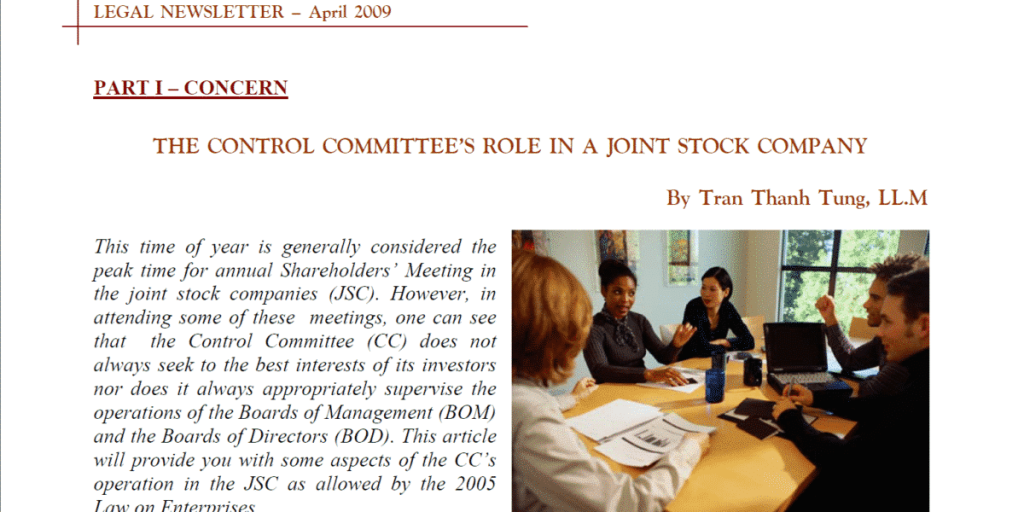By Lawyers Le Quang Vy and Le Trong Them
As regulated by the current law, in order to bring an art performance to the public, the corporate organizer must pass two rounds of censorship. The first round is to apply for the license to hold the art performance. The second round is to do a live run through for censors which the artistic community often refers to more delicately as “re-examining” art performances.
In order for the Arts Council to conduct re-examination activities, the corporate organizer must hold a complete performance which includes performers, venues, sounds, lighting, stages, even performing costumes and so forth. This means a performance must be held twice, firstly for the Arts Council, and the second to entertain the public.
So, why is this re-examination maintained for art performances with ticket sales? What should legislators and regulators do to disentangle the domestic performing industry from regulation for the sake of its growth, particularly in response to the influx of performing industries from advanced countries in the region in particular and the world in general?
Who determines the enterprise’s revenue, the Arts Council or the audience?
Pursuant to Article 10.1.(c) of Decree 79/2012/NĐ-CP amended and supplemented by Decree 15/2016/NĐ-CP regulating art performances and fashion shows; beauty and model contests; and circulation and trading of audio and visual recordings of song, dance, musical and theatrical performances, “organizations or individuals who have applied for licenses to hold art and fashion performances in the service of political duties, holidays and festivals, events with ticket sales and performances for other purposes must hold the said performances for censorship by the Arts Council as required by the competent state management authorities.”
Pursuant to this regulation, an event with ticket sales includes live music shows, composers’ music nights, music programs etc. and must be censored by the Arts Council in advance if so required by the competent authorities.
The competent central state authority is the Department of Performing Arts and the local one is the Department of Culture, Sport and Tourism. In reality, most art performances with ticket sales are now censored by the Arts Council.
The mission of the Arts Council is to evaluate, assess the thoughts, contents, form, program art quality, scripts and writings of the corporate organizer. It is thought that, for performance programs that use the state budget for the service of political tasks or national holidays, it is essential that a festival organizer requests the Arts Council to appraise its contents to ensure the right purpose. On the contrary, for revenue earning art performances held by the corporate organizers themselves, an art appraisal seems unsuitable because the art performances earning any revenue from ticket sales to spectators are merely an ordinary civil relationship between art service suppliers and buyers. The legislation strictly regulates banned areas in the operations of organizing performance arts such as no advertising under the name of an artist, using a singer voice recording instead of a singer’s true voice, performing banned works and so forth. Accordingly, the performance organizer just follows the rules and will suffer any sanction in case of its violation. Market mechanisms will evaluate the artistic quality of the performance. Of course, if enterprises do shoddy work, they cannot sell tickets. If the corporate organizer continues to host “shoddy performances” leading to non-credibility, the audience themselves will “boycott” such corporate organizer.
More importantly, the right to freedom of artistic creation is a constitutional principle; no one is entitled to deprive others of it. Intellectual Property Law further stipulates that no one may fix or crop any works of an author or any icon of a performing artist. Therefore, the Arts Council cannot interfere in the creative rights of a director or performer if their creative work does not violate the legal prohibitions.
It needs to review the mechanism for re-examination of the art performances with ticket sales.
For the Arts Council to appraise a program, the corporate organizer must naturally hold a performance program as close to what would be presented to the public as possible. This costs an organizer additional expense while the state management authorities are given an additional workload that consumes time and effort without any consistency with the relevant law as analysed above.
Removing or changing the way art performance programs with sales of tickets are regulated will enable corporate organizers of art performances to save input costs; the public accesses to cheaper tickets to watch programs; performing artists to spend more time on providing services; and state authorities to be relieved of a management burden. In other words, a mechanism shift in this case will bring many social benefits.
From the perspective of the state management on arts performing operations with sales of tickets, it is hoped that, once the Law on Arts Performance Organization is built and adopted in the upcoming days, the economic nature of the said arts performances will be properly defined and with a more appropriate regulatory mechanism.





